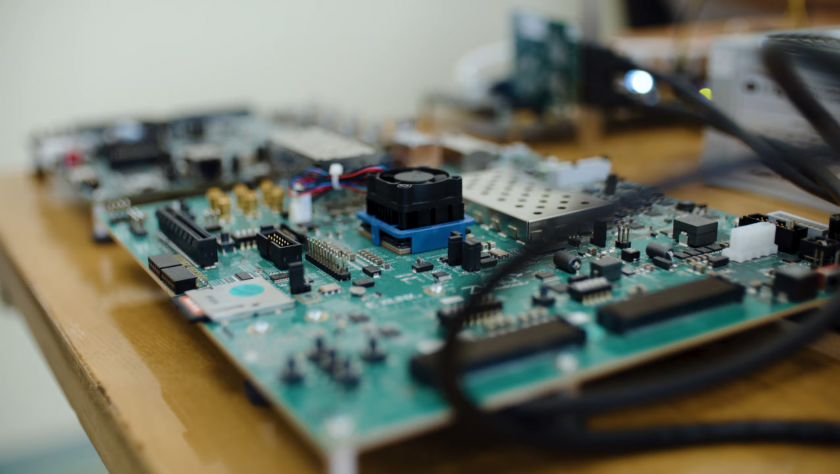
As of January 2nd, 2023, the Institute of Electronics and Computer Science (hereinafter -EDI) has started the implementation of the “Horizon Europe” KDT Joint Undertaking project “Digitalization of Power Electronic Applications within Key Technology Value Chains” (hereinafter – PowerizeD).The overarching goal of PowerizeD is to develop breakthrough technologies of digitalized and intelligent power electronics, in order to enable sustainable and resilient energy generation, transmission and applications. PowerizeD enhances the level of mechanical and electrical integration of new driver circuits into power electronics and allows for the first-time common optimization of all power switch functionalities. Regarding data sharing along the value chain, PowerizeD drives the novel approach of Federated Learning as a methodical approach to an intrinsically encrypted transfer of confidential and proprietary data. Also new is the usage of detailed electrical physical models in digital twins of real-time digitally monitored and controlled power electronic devices. Unlike other projects focusing on competence and technology with limited effort on demonstration, this project will start from vital societal needs, by identifying and analyzing the key generic technology challenges from broad application scopes. A major effort will be spent on cross-domain research and innovation. The developed technologies will be demonstrated and evaluated via a large number of universally applicable results. To realize this ambition, a large project consortium will incorporate the needed competencies and resources along the whole value chain. 21 Large Entities, 18 Small Medium Enterprises and 23 research partners – representing the entire value chain from materials to “system of systems” – strive to demonstrate the applicability of these innovative approaches to multiple industrial domains. Among the concrete objectives are a 25% reduction or power losses, a device and system lifetime increase of 30%, a chip size reduction of at least 10% and a shortening of the design time by 50%. By this, PowerizeD addresses the three megatrends Independence, Sustainability and Digitalization, thereby opening pathways to massive economic and societal benefits for the EU.
EDI Deputy Director for Development and Leading Researcher Dr. Kaspars Ozols
emphasizes: “Especially now, it is crucial for the European Union to find new solutions to ensure affordable, secure, clean and sustainable energy. This means not only finding new energy supply chains and sources but also creating and optimizing new technologies throughout the whole value chain, thus allowing to increase the performance and efficiency of the key technologies. That is the reason why we are really proud to be in a consortium together with such internationally recognized partners as Infineon Technologies, ABB, Bosch, Mercedes Benz, Alstom, Fagor Automation, Scania, Ingeteam Power Technology, Fraunhofer, and many others, and together implement the PowerizeD project, which will not only develop breakthrough technologies of digitalized and intelligent power electronics but will also make a significant contribution to the achievement of the strategic goals of the European Green Deal initiative”.
In order to achieve the goals of the project within 36 months, the project consists of 62 partners from 13 countries (Germany, Finland, Spain, Netherlands, Sweden, Belgium, Austria, Italy, Hungary, Switzerland, Greece, Rumania, Latvia) with a total budget of ~73 million euros.In this project, EDI will research available electronic component model databases from level 3 (very accurate, but slow) to level 1 (less accurate, but fast) and analyze the most promising data collection approaches to ensure both accuracy and speed. Also, EDI will explore various implementation concepts of running neural networks on multiple energy-constrained devices (edge devices) with an aim of increasing performance from combined learned information, while maintaining the privacy of sensitive information. In addition, EDI will explore control algorithms and their implementation for the newly designed gate driver. For this purpose, EDI will attempt to utilize modern Artificial neural network (ANN)-based algorithms for finding optimal control approaches while potentially restricting the control signals for protecting electronic components. Lastly, EDI will develop new AI-based algorithms for efficient model building. Various optimization techniques and pre-processing approaches will be researched to improve the accuracy and performance (e.g. speed) of the model building.
For more information on the PowerizeD project, please contact Dr. Kaspars Ozols (+371
67558161, kaspars.ozols@edi.lv).